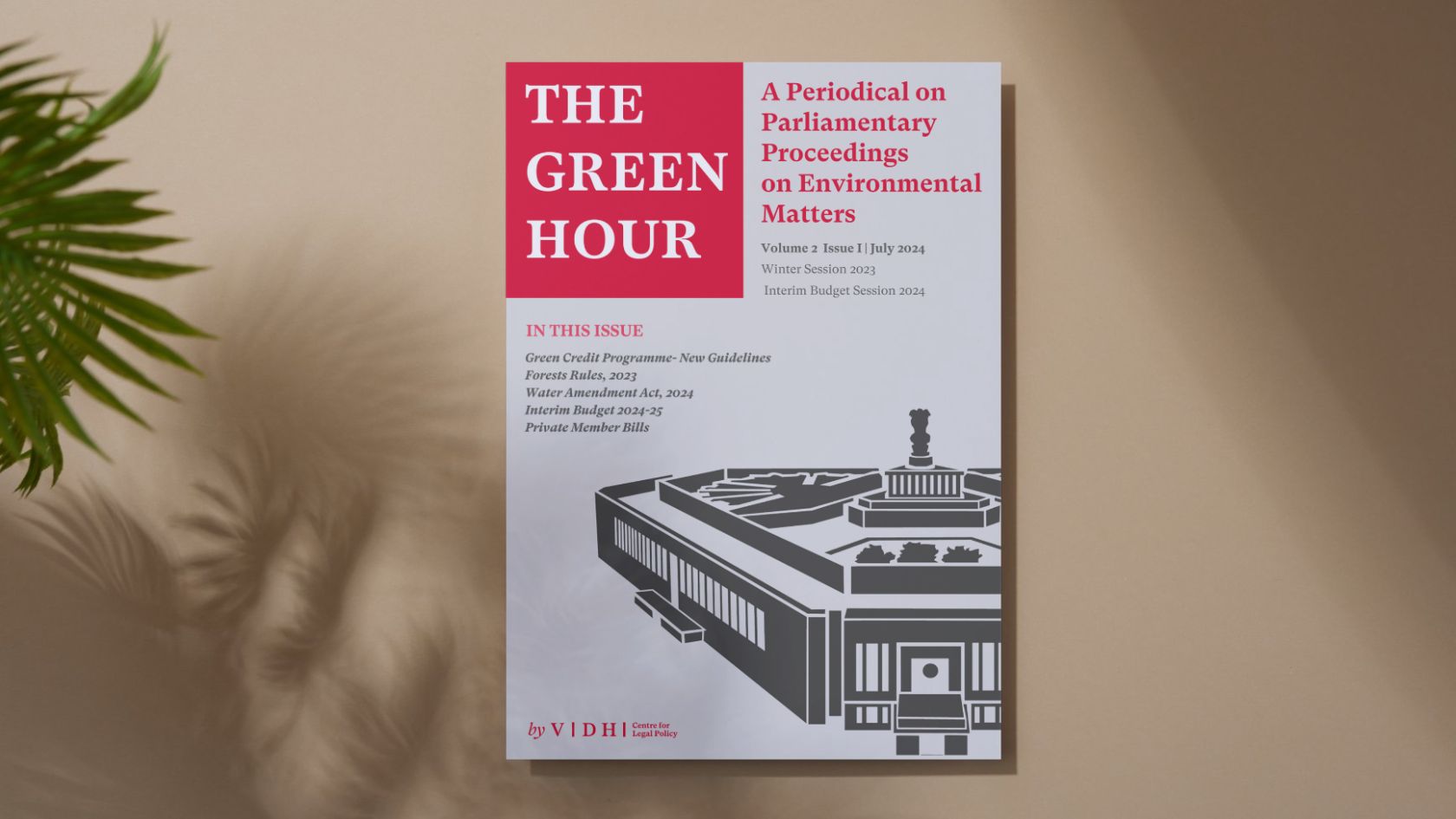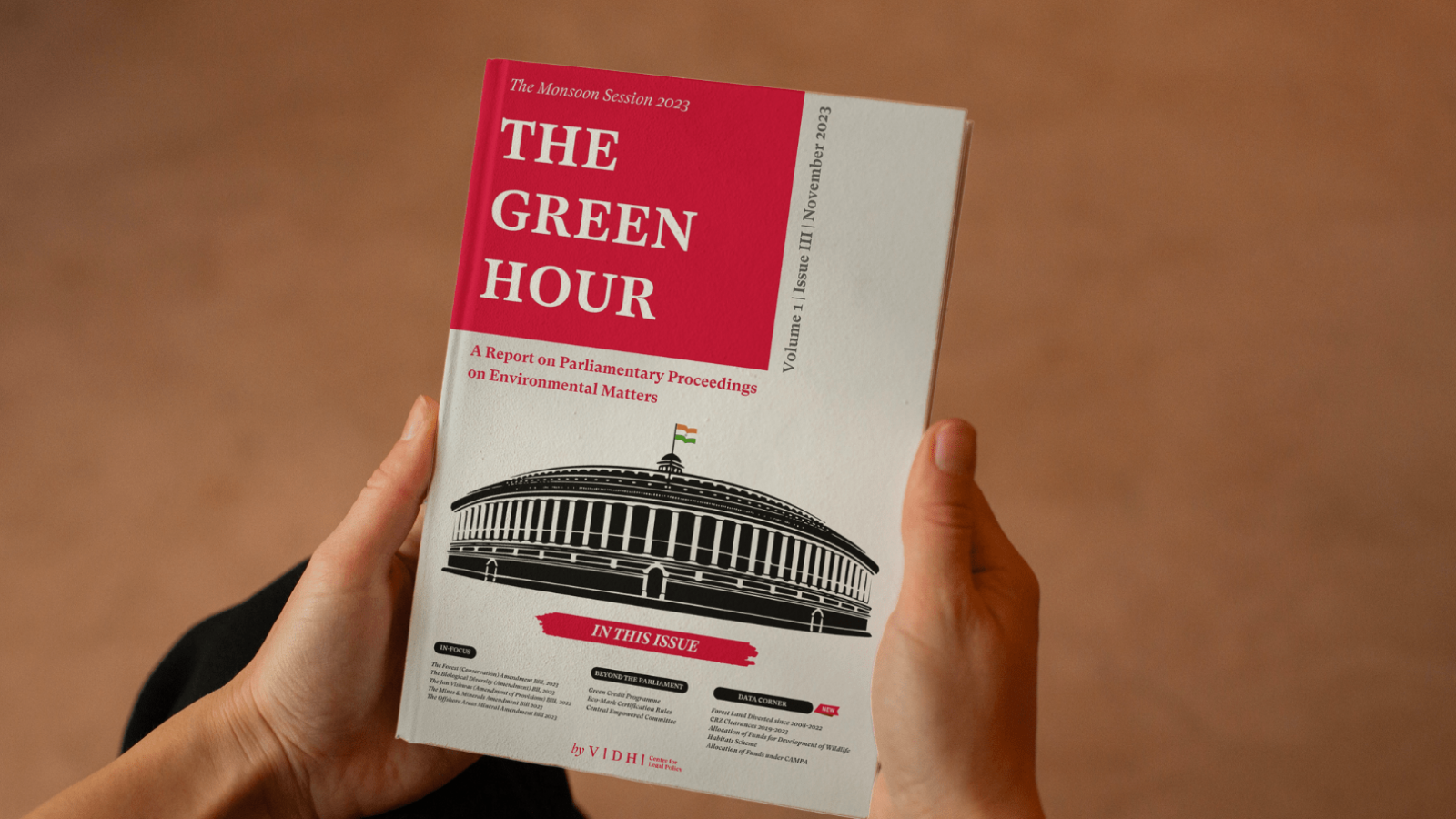
Comments to the Joint Committee of Parliament on The Biological Diversity (Amendment) Bill, 2021
The submission highlighted the need to include and improve certain clauses for clarity, discusses the implications for the proposed exemptions and other key amendments proposed.
The Biological Diversity (Amendment) Bill, 2021 was tabled in the Lok Sabha on 16th December 2021, by the Union Minister of Environment, Forest and Climate Change. On 31st January 2022, the Climate and Ecosystems Team at Vidhi submitted its comments to the Joint Committee of Parliament, which invited suggestions from various stakeholders.
The proposed Bill improves upon the Act by acknowledging the Nagoya Protocol on Access to Genetic Resources and Fair and Equitable Sharing of Benefits Arising from their Utilisation, 2010, in addition to the parent convention i.e., the Convention on Biological Diversity. The Bill also proposes increased involvement of local bodies in certain provisions. Adding definitions for certain important terms such as ‘access’ and replacing the term ‘equitable’ wherever used in the Act with the term ‘fair and equitable’ are some of the other welcome additions in the Bill.
Although it does bring clarity in certain aspects, Vidhi’s analysis also indicates that the Bill proposes significant relaxations in regulation of biological resources and the associated knowledge. Several amendments proposed in the Bill create more confusion and lack clarity, leaving adequate scope for wide interpretation and assumptions which may defeat the original intent of the Act. In this background, following are some of the concerns highlighted by Vidhi in its submission:
- Removal of the term ‘bio-utilization’ from the Act creates ambiguity as to whether access of biological resources (or associated traditional knowledge) for the purposes of ‘characterisation, inventorisation and bioassay’ would be regulated anymore. To ensure their continued regulation, these terms should specifically be included in the definition of ‘research’ in the Act.
- The scope of Section 3 (2) has been revised to include an organisation which is incorporated or registered in India but is a ‘foreign-controlled company’. The proposed definition of ‘foreign-controlled company’ under the Bill when read with Section 2(42) of Companies Act 2013 creates confusion.
- Since companies which are not foreign-controlled companies have been exempted from seeking the approval of National Biodiversity Authority (NBA) for accessing biological resources, it may exclude a large number of bodies from the regulatory purview of the Act.
- The Bill provides for certain exemptions with respect to ‘codified traditional knowledge only for Indians’. The scope of the phrases ‘codified traditional knowledge’ and ‘only for Indians’ should be clarified to ensure there are no deviations to international obligations.
- The Bill affords certain exemptions to AYUSH practitioners from seeking prior authorisations and sharing benefits. To safeguard against exploitation, the scope of the term ‘AYUSH practitioners’ should be clearly defined.
- The Bill creates the additional post of Member Secretary (MS) who shall be the chief coordinating officer and convener of NBA. This creates two centres of power – the Chairman and the MS. It also creates discrepancy with other environmental legislations.
- The NBA or State Biodiversity Board should be required to mandatorily obtain the prior and informed consent of Biodiversity Management Committees rather than simply seeking consultation with them as has been the position under the Act and the Bill.
- The Bill replaces imprisonment as a punishment with a mere monetary penalty. This may have a lower deterrent effect on offenders.





